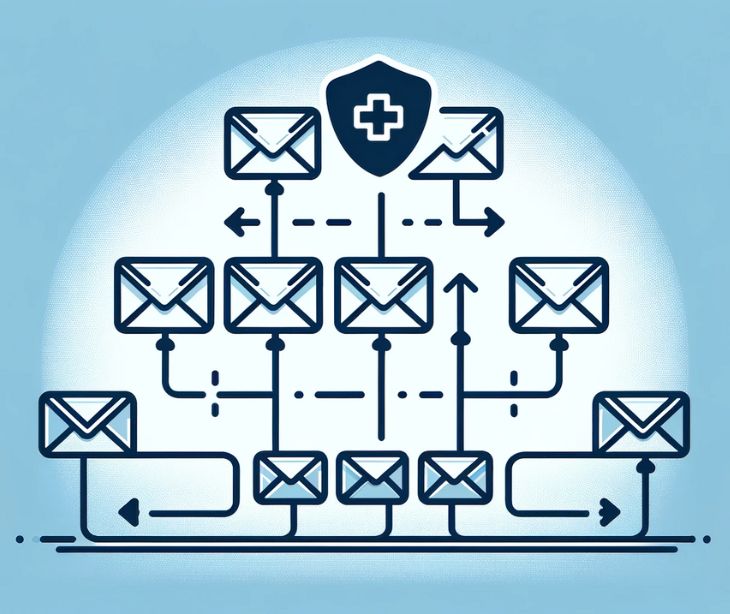2 min read
Fertility treatment support healthcare providers can offer through email
Kirsten Peremore
February 07, 2025

Effective communication outside appointments especially through secure means like HIPAA compliant email stands to improve patient support during fertility treatments. This support becomes especially necessary in the face of numerous challenges that come with fertility healthcare. The process is often time-consuming, costly, and invasive. A study published in the Journal of Community Psychology poses, “Participants reported multiple infertility treatment‐related stressors including (a) difficulty accessing infertility treatment due to financial issues, geographic disparities, and healthcare provider factors…The stories and findings add to a body of literature that elucidate significant stressors that women encounter in their fertility journey including a desire for empathetic, understandable, and effective treatment and support.” This makes it all the more necessary for providers responsible for supporting patients during treatment to address the medical and emotional well-being of patients.
The value of support in the fertility treatment process
A PLoS study provides, “The treatment dropout or discontinuation rates for fertility treatments are often high, as a result of psychological, physical and financial burden related to these procedures.” Support, particularly emotional support, protects the mental health of patients during a particularly challenging time.
It helps patients cope with the psychological burden associated with repeated cycles of treatment failure or success. Social support has also been shown to positively influence health behaviors like retention in healthcare services. It all means that when patients feel supported by their healthcare providers or their social networks, they are more likely to continue with their treatment plans despite financial constraints or initial setbacks.
The central areas of support offered through email
- Clinics can send introductory emails explaining their services, including IVF, IUI, egg donation, surrogacy options, and more. Patients receive detailed information about potential treatment plans tailored to their specific needs.
- Healthcare providers often ask patients to specify their preferred method of communication (email or phone) to ensure that updates are delivered effectively. Changes in communication preferences should be communicated promptly to avoid misunderstandings.
- Patients can request appointments via email for consultations or procedures like semen analysis or gynecological examinations. Confirmation emails help manage schedules efficiently.
- Clinics may share educational materials on fertility treatments through email newsletters or attachments. These resources help patients understand the process better and prepare them for what lies ahead.
- Fertility journeys can be emotionally taxing; therefore, clinics often provide emotional support through regular check-ins via email. Nurses and patient navigators may send encouraging messages or reminders about upcoming appointments.
- Detailed instructions on medication use are typically provided via email along with dosage schedules. Patients are encouraged to follow up if they have any questions regarding medication protocols.
- After treatments like IVF cycles or embryo transfers, follow-up care instructions might be sent via email.
FAQs
How can physicians effectively use active listening to support patients?
Physicians should focus on attentively listening without interrupting, allowing patients at least two minutes to express their concerns before responding.
How can physicians effectively use active listening to support patients?
Physicians should focus on attentively listening without interrupting, allowing patients at least two minutes to express their concerns before responding.
Why is avoiding jargon important when communicating with patients?
Using simple language ensures that patients understand their conditions better, facilitating informed decision-making about treatment options.
Subscribe to Paubox Weekly
Every Friday we'll bring you the most important news from Paubox. Our aim is to make you smarter, faster.



